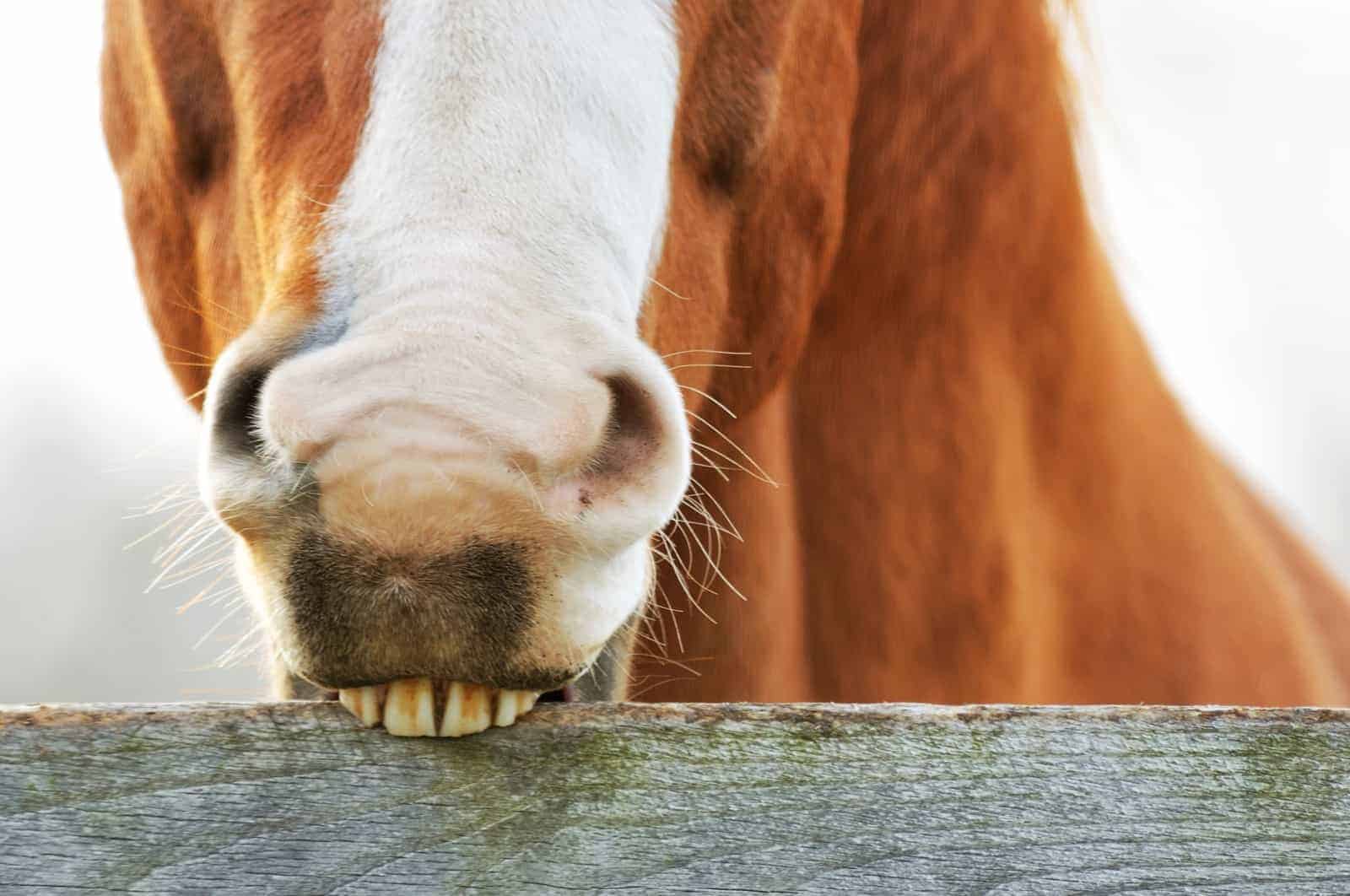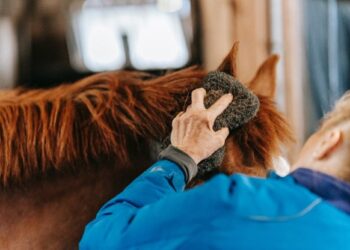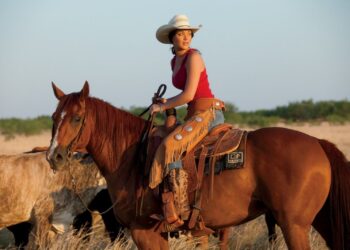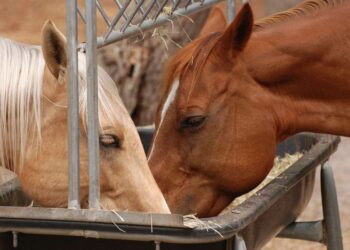Some horses suffer from stable vice at some point. There are many different stable vices. One of these is crib-biting or air-sucking. In this stable vice, a horse will sink its teeth into something and suck in air. Improving your horse’s life will often reduce stable vice.
Why Do Horses Start Crib-Biting?
There are horses that spend as much as 50 percent of their daytime crib-biting. It is almost always due to the way horses are kept. It is a myth that horses learn this behavior from other horses.
When a lot of horses do this in a certain location, it’s just a sign that something is seriously wrong with the way of keeping horses!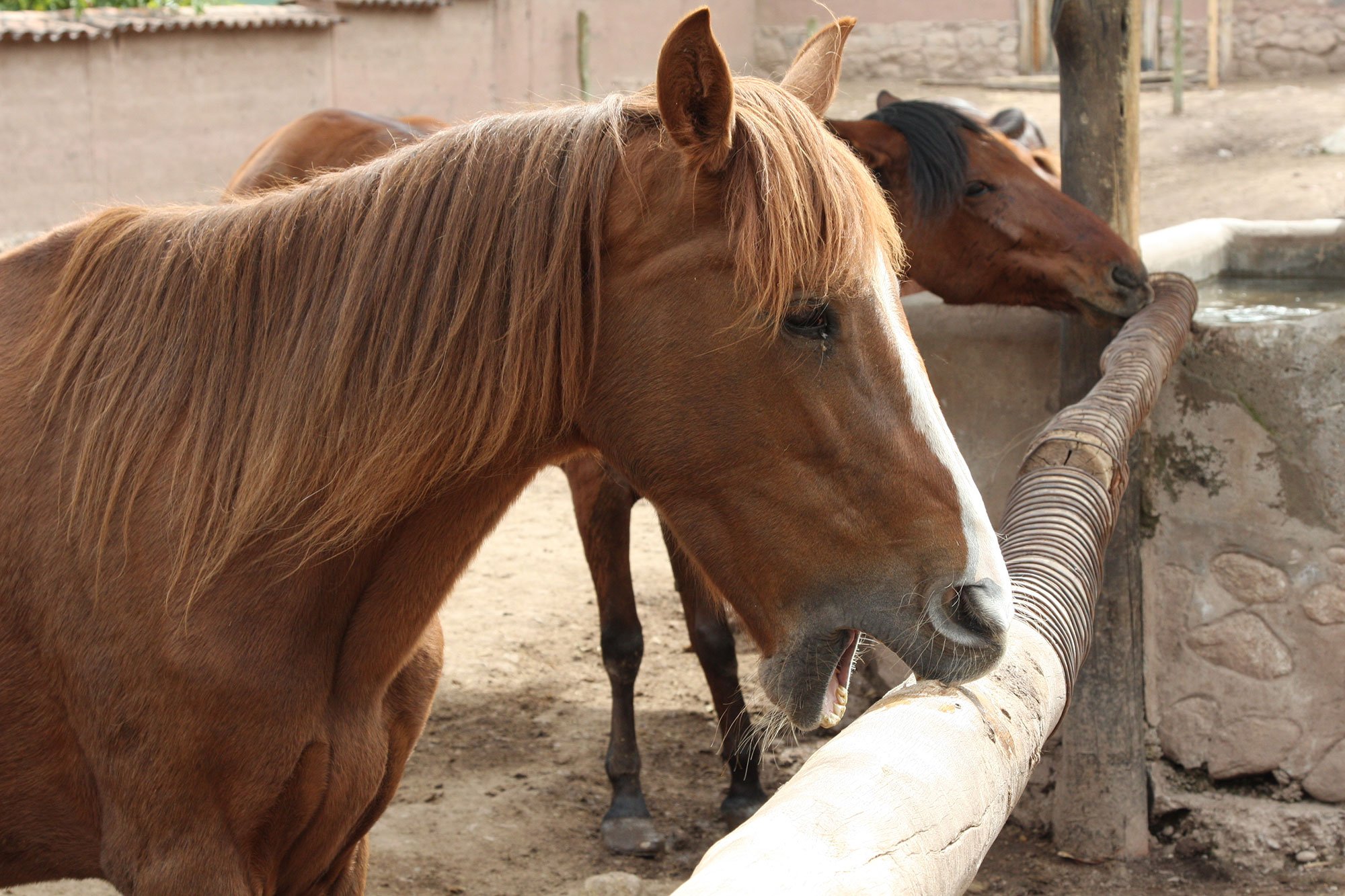
Cribbing means that a horse clings to something with its teeth. This can be a feeding trough, a stable door, or a fence from the meadow. He creates a vacuum in the back of his throat and then let’s go. During this action, a rasping sound is produced.
Reading Suggestions: 501+ Horse Names For Male and Female Horse Names
Research
Research has shown that horses do not swallow large amounts of air while crib-biting. It does not cause problems such as colic or other digestive problems. In fact, it is exactly the opposite. The horses start to crib because they are stressed or bored. The stress does cause digestive problems, stomach ulcers, and colic.
There are also several studies on the feeling that is evoked in the horse when he cribs bites. Among other things, the substances endorphins and encephalin are released, these substances can be compared to a type of drug.
The substances provide a stress reduction and a feeling of happiness. These substances also reduce the possible pain of the horse. Every horse will express its stress differently, which is why not all horses will crib. Warmbloods and Thoroughbreds in particular, which are easily tense and highly sensitive, regularly engage in crib-biting.
How Do I Get My Horse To Stop Crib-Biting?
The answer most often given is: ‘you can’t stop it. Even if you completely change your horse’s situation and he is no longer stressed, he may still continue to crib. Horses continue to have the urge to do this, they have become addicted to endorphins, as it were.
Another explanation is that deeply ingrained habits cannot disappear overnight. It doesn’t have to be from the stress, the horse just doesn’t know any better. It is important that you investigate the cause of the crib-biting.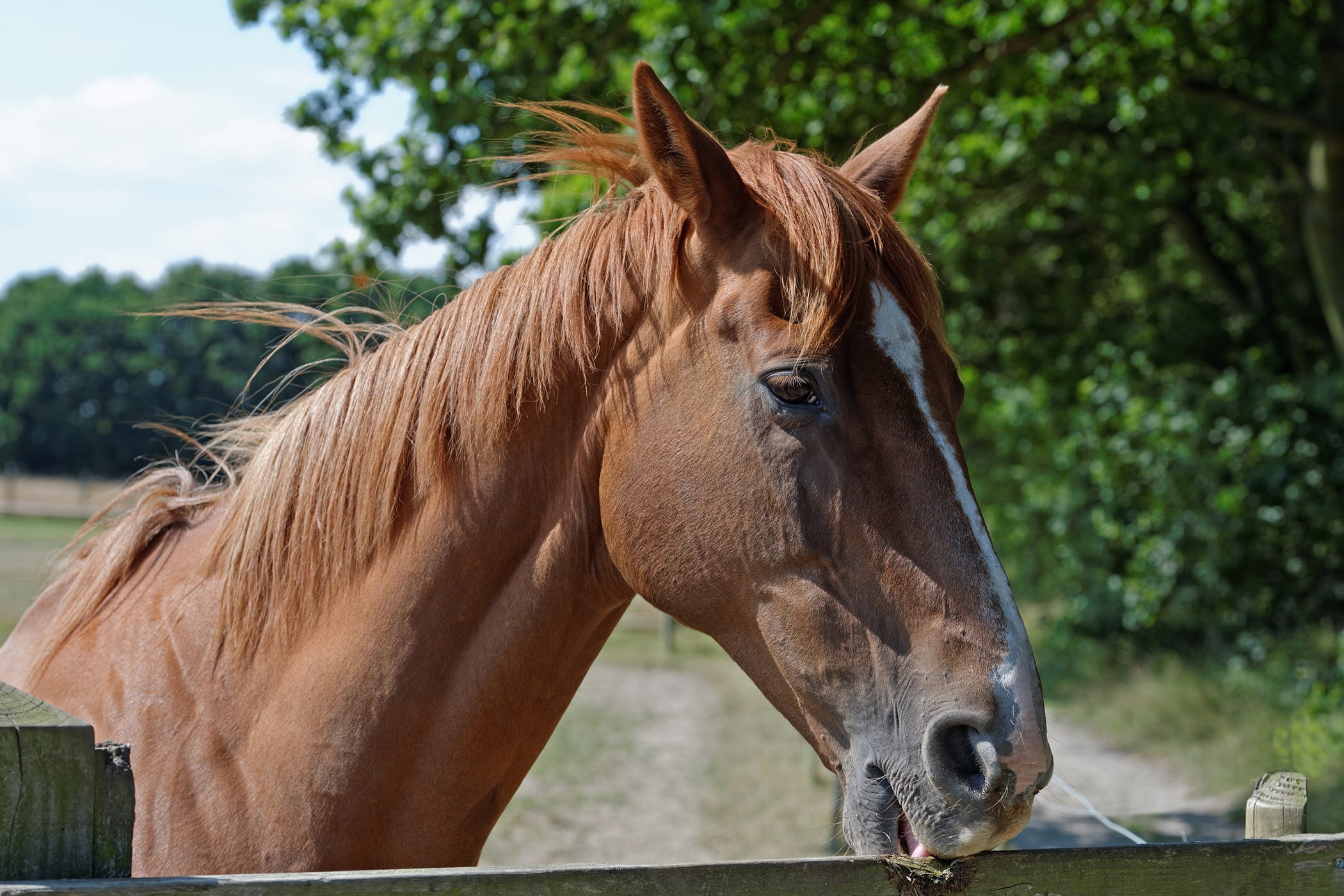
Even if your horse continues with it, his life will be improved because the stress disappears. To make your horse happy, you must ensure daily grazing and a constant supply of roughage. For example, you can put your horse on straw instead of sawdust, so your horse has something to nibble on all day long.
You also have to make sure that your horse has enough variety. For example, go for a ride outside one day, jump the next and let him do the groundwork in the box the next day. It is also very important that your horse comes into sufficient contact with peers
Reading Suggestion: 6 Best Horse Clippers For Body Clipping
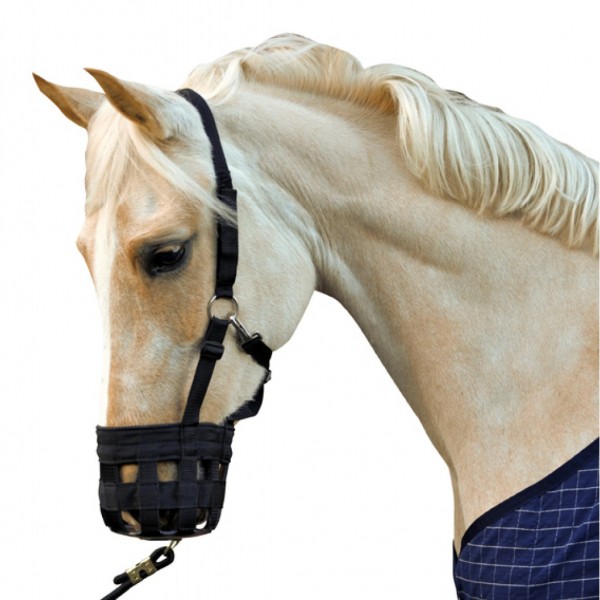
Throat Strap
Some people use a throatlash with a metal part when they want to stop the crib-biting. As a result, the horse can no longer bend its neck so much that it can crib bite. In most cases, this is a very bad solution! The horse can no longer express its stress by crib-biting and will therefore look for another way.
Lubricate
It is also an option to smear something on the feeder or on the fence. This makes the feeder less attractive for the horse to put his teeth on. One of the substances you can use is crib ox. Cribox is an anti-bite paste that prevents horses from nibbling on their stable.


